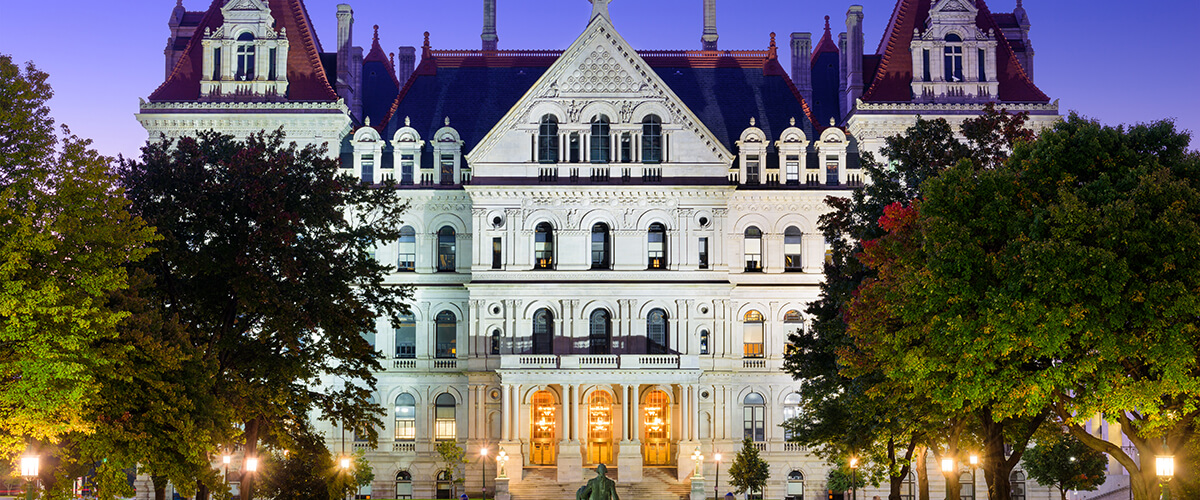The new marijuana decriminalization bill is set to take effect 30 days after becoming law.
New York Governor Andrew Cuomo on Monday signed into law a bill decriminalizing possession of small amounts of marijuana. The law is set to go into effect August 27th, or 30 days after becoming law.
Under the bill, possession of small amounts will be punished with fines, rather than jail time. Offenders caught with possession of less than one ounce of marijuana will be issued a ticket for $50. Those caught with between one and two ounces of marijuana will be cited a ticket for $200. Anyone caught with more than two ounces will be charged with a misdemeanor.
The law also allows for the expungement or destruction of records for those with past low-level possession convictions. FBI records show that 360,000 individuals were arrested for possession between 2008 and 2017. It is estimated that the records of 24,400 individuals will be erased under the new law.
“Communities of color have been disproportionately impacted by laws governing marijuana for far too long, and today we are ending this injustice once and for all,” Cuomo said.
“By providing individuals who have suffered the consequences of an unfair marijuana conviction with a path to have their records expunged and by reducing draconian penalties, we are taking a critical step forward in addressing a broken and discriminatory criminal justice process,” he added.
I just signed legislation decriminalizing marijuana use in New York & creating a process for expunging past convictions.
Communities of color have been disproportionately impacted by laws governing marijuana for far too long, and today we are ending this injustice. pic.twitter.com/PBSXWbQtiW
— Andrew Cuomo (@NYGovCuomo) July 29, 2019
The Politics of Marijuana
Cuomo has pushed for full marijuana legalization in New York this year. After unveiling his legalization plan, the governor formed a workgroup to write a recreational marijuana bill and released a report showing the positive impacts of statewide legalization.
The New York Legislature tried to pass full legalization earlier this year, but advocates failed to secure sufficient votes in the State Senate by their deadline in mid-June, prior to the ending of the legislature’s session. Momentum was lost when Cuomo separated a deal on marijuana reform from the state’s annual budget bill, which was the original plan to secure its passage.
Decriminalization is thus seen as a compromise.
“This law is an important step in righting decades of injustice caused by the state’s current drug laws. By removing the barriers and stigma that come with these records, we clear the path for many New Yorkers to find a job, housing and go on to live successful and productive lives,” said Assembly Speaker Carl Heastie.
Some lawmakers in favor of decriminalization prefer it to legalization because they believe legalization would increase drug use and allow for corporate advertising to become prevalent.
Cuomo signaled his willingness to support legalization after a strong primary challenge from actress Cynthia Nixon last year in the gubernatorial primary. He said he wished to use the revenue derived from legalization to fix New York City’s ailing subway system.
Because the law does not allow for full legalization, there will be no increased revenue nor can legitimate cannabis businesses be opened as in Colorado or Oregon, where marijuana is fully legal. An analysis said legal marijuana sales could generate up to $4.1 billion in economic impact for the state.
In addition, some legalization advocates believe that overzealous police officers will find ways around the decriminalization law to continue targeting minorities for arrest.
“Police have historically found a way to work around the decriminalization of marijuana,” said Erin George of Citizen Action of New York. She pointed out that decriminalization also leaves in place penalties for those coping with probation and immigration issues.
Legalization advocates plan to make another major push next year.
Latest on Cannabis
Stay on top of what is happening in cannabis legislation and criminal justice reform in New York and elsewhere throughout the U.S. by regularly checking back into our news page.






